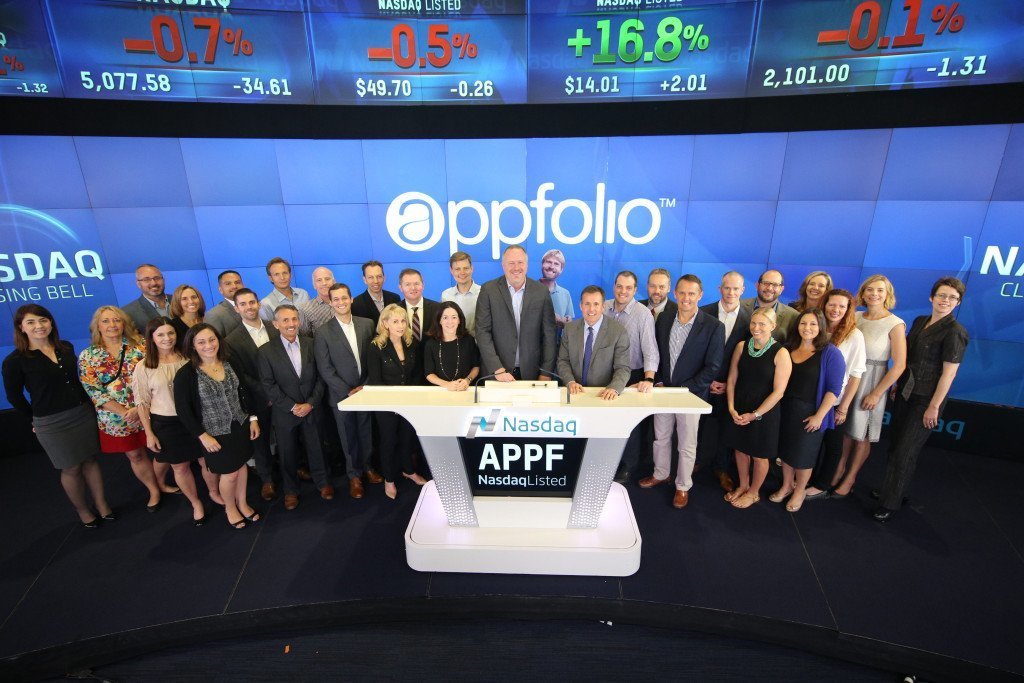Last June, AppFolio, the Goleta, Calif.-based company that owns MyCase, the cloud-based practice-management platform, completed an initial public offering in which it raised some $74 million. I cannot think of a major IPO in the legal industry in recent memory. So what does this mean for MyCase and what does it mean for the legal industry more broadly?
Yesterday, I spoke about the IPO with Jason Randall, executive vice president of AppFolio, and Nicole Black, who holds the enviable title at MyCase of legal technology evangelist.
AppFolio acquired MyCase in 2012 from its original founders. At the time, AppFolio’s primary product was AppFolio Property Manager, a cloud-based property-management platform for residential and commercial property managers. Now, with its IPO behind it, the company plans to expand into other verticals, following a similar model of offering cloud-based management software for small- and mid-sized businesses.
With regard to the legal vertical and MyCase, the IPO’s impact will be minimal, Randall said. The company already had a clear road map for developing the product and already was investing heavily in building that out.
“We were marching on a mission before the IPO and we’re marching on the same mission after the IPO, which is giving our customers a great product to use,” Randall said. “We’ve been heavily investing in that since day one and that hasn’t changed.”
AppFolio has a list of product enhancements it is working on for MyCase, including one that will be released soon. Neither Randall nor Black would say what it is, except that it will be “big.”
“We believe in this market,” Randall said. “By buying MyCase to begin with and heavily investing in it, as we have and will continue to do, it shows our confidence that this is a great market to be in and that it is one we are committed to.”
I asked Randall if AppFolio would use any of the money raised in the IPO for new acquisitions. He said that they are looking at that possibility but that any acquisitions would have to align with the company’s overall goal of providing the best value to its customers.
I also asked him whether MyCase would pursue more integrations with third-party vendors, similar to the way that competitor Clio has added integrations with a number of vendors to provide added services and functionality.
MyCase already provides some integrations, such as with Quickbooks and Microsoft Outlook, he pointed out. There will definitely be others, but they will be done strategically and seamlessly based on what is best for MyCase’s customers.
“Sometimes the tendency is to integrate with everyone who’s integratable,” Randall said. “We’re not interested in integrations that generate a great press release but have little value for our customers. Our focus is on what our clients need and how best to provide that.”
The customer experience is also important, he added. “When we do an integration, we work hard to make sure it’s seamless. It should be almost invisible. It should just work.”
Both Randall and Black see significance in the IPO beyond specific product enhancements and development plans.
Black, who has been writing about cloud computing since 2008 and is author of the 2013 American Bar Association book Cloud Computing for Lawyers, said that the IPO shows that cloud computing is here to stay in the legal industry and that there is a market for innovation in legal technology.
For MyCase, the IPO shows that it is part of a significant cloud company that is committed to growth and development. “The IPO shows that MyCase is here to stay, that we’re here for the long haul and really invested in making it the best platform on the market.”
 Robert Ambrogi Blog
Robert Ambrogi Blog